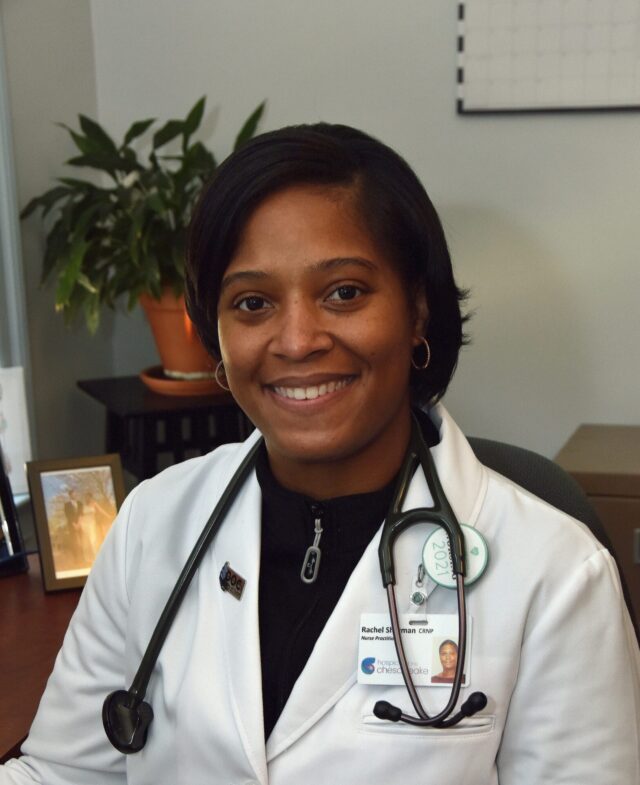
More Hospice & Palliative Care Articles
Courageous Conversations Are a Gift to Those You Love

I talked with my grandmother all the time. We were very close, so even when I was going to school eight hours away from home I still talked with her often on the phone. While I was away, she got cancer. Soon, I noticed our conversations were different. So, I got on a bus to drive home. When I got there, I found her in a hospital bed in her living room with a hospice nurse and a social worker. My family had kept things from me to protect me. But it had done the opposite. Seeing my grandmother so sick and so weak was so upsetting.
The nurse and social worker had with me what I now call a courageous conversation. They talked about what was happening with my grandmother. I was 16. That was my first exposure to hospice and palliative care. I already knew I wanted to be a nurse and a caregiver, but it was in that moment that hospice professionals supported me. I decided that I would want to give that kind of support to others.
When I’m having courageous conversations as a medical professional, I figuratively take off the white coat and scrubs, because death and dying is not a medical event for most people. It is a human experience. You must have courage to share bad or devastating information without hiding behind medical jargon.
When I’m having courageous conversations in the community, I literally take off my white coat and scrubs. Especially in churches, where it’s a sacred space to talk about transitioning to end of life. You need to do some research and learn about the culture you’re walking into.
Courageous conversations are not all doom and gloom. They’re a gift to your family to help them prepare for the time when you will no longer be here. Research shows families whose loved ones had advanced directives and conversations before they transitioned experience less anxiety, less depression and less of a burden at the end of life.
A courageous conversation can be uncomfortable, unexpected and unwanted. But it’s necessary. Talking about life-limiting illness and death before it happens means accepting that this will happen to you or someone dear to you. Once you have these conversations, the door is open to preparing for every milestone in your life. Not just education, marriage, children and career, but the final milestone of your death.
Other Articles You May Find of Interest...
- Don’t Deny Your Loved One Comfort Because Of These Morphine Myths
- Living With ALS
- COPD: When Is It Time To Choose Hospice Care?
- How Hospice Social Workers Make Everyday Moments That Matter
- Volunteers Are Vital Members Of The Hospice Clinical Team
- Courageous Conversations Are a Gift to Those You Love
- Improving Access For Blacks To Hospice and Supportive Care

















